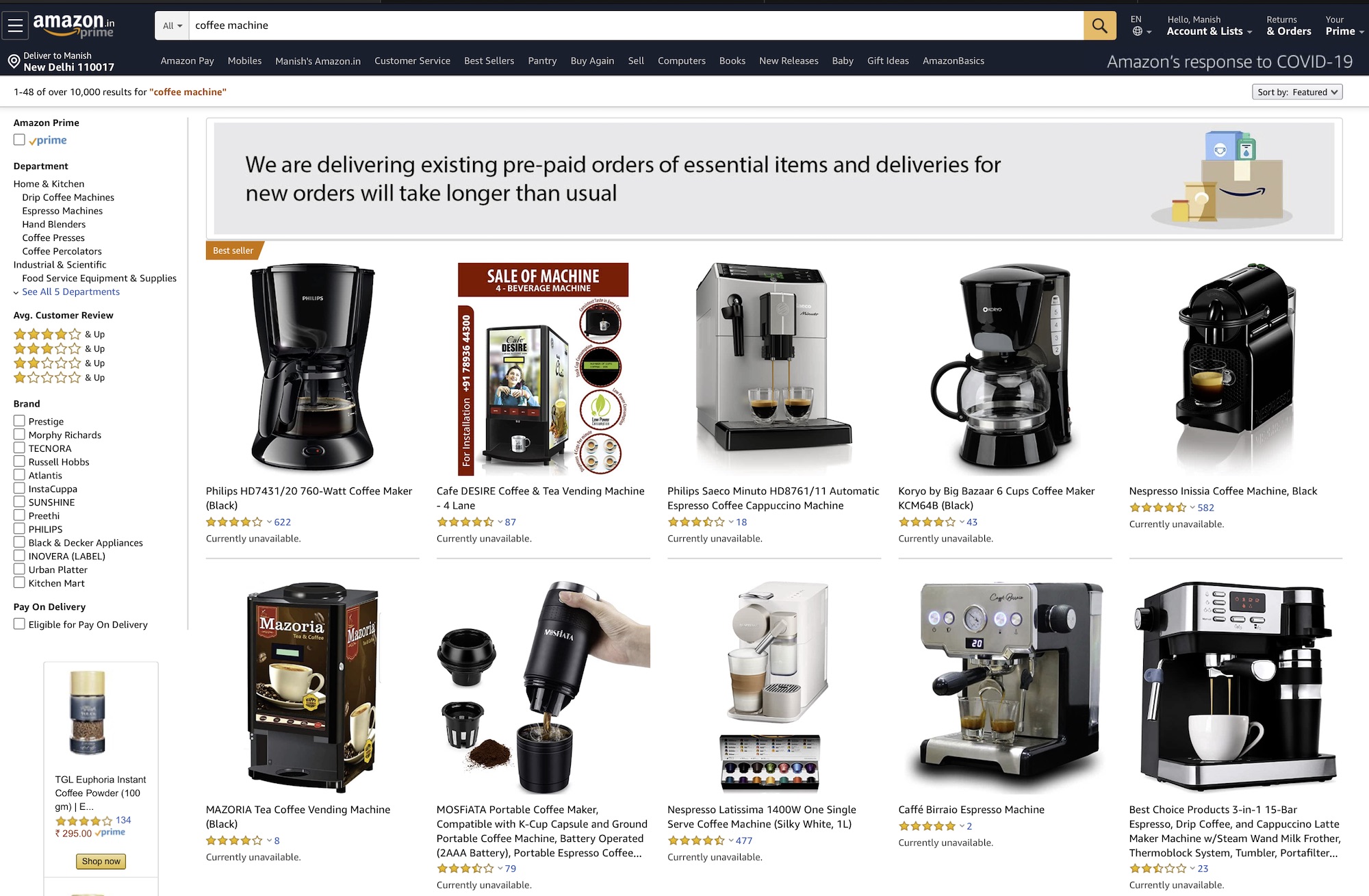Flipkart, Amazon and other online shopping firms will resume selling “non-essential” items to customers in India starting April 20, weeks after New Delhi imposed a lockdown in the country that has cost e-commerce companies more than a billion dollars in sales.
New Delhi said on Thursday that e-commerce companies can resume accepting customers orders for non-essential items including smartphones and laptops starting next Tuesday. Spokespeople of Flipkart, Amazon, and Paytm Mall confirmed to TechCrunch that they will be complying with the new direction.
Flipkart, Amazon, and Paytm Mall stopped taking orders for non-essential items in India last month and only processed orders of grocery items, hygiene products, and perishables. The companies also scrambled to work with various state governments and shortage of delivery personnel, leading to weeks-long delay in shipments.
“We are now focused on supporting the immediate need of consumers and also participating in the resumption of economic activity post the Ministry of Home Affairs notification. We are working closely with all our partners — brands, manufacturers, sellers, small businesses and local shops — helping them to offer the most needed products to customers. While we will increase selection that customers can safely shop from their homes, we will also continue to ensure safety of our delivery associates and our teams at our facilities,” an Amazon spokesperson said in India.
Governments across the world are trying to find the right balance between safety and convenience for their citizens. In many markets, Amazon has limited the variety of items it can fulfill for its customers. Interestingly, in France this week the company said it will appeal a similar order from the government.
India this week extended the nationwide lockdown, which began last month, to May 3, but relaxed some restrictions on several industries including e-commerce.
“Digital economy is critical to the services sector and is important for national growth. Accordingly, e-commerce operations, operations of IT and IT enabled services, data and call centres for government activities, and online teaching and distance learning are all permitted activities now,” the ministry said (PDF).

A look at Amazon India’s website where most items are currently not available for purchase
The lockdown has cost e-commerce companies more than a billion dollar in lost sales in the last three weeks, Satish Meena, an analyst with research firm Forrester, told TechCrunch. Non-essential items account for more than 65% of GMV for online marketplaces, according to the firm.
“Allowing e-commerce firms to fully resume operations is a proactive decision that the government has taken to help businesses get back on track and generate consumer demand. Paytm Mall stands favorably poised to help merchants and connect stores with customers and in ensuring products are delivered home,” said Srinivas Mothey, Senior VP at Paytm Mall, in a statement.
But customers should still expect their deliveries to take longer than usual to reach them. An industry insider said the companies will likely struggle with finding enough delivery staff for another few weeks and not all businesses would be proactively operational to process the orders.
Paytm Mall and Flipkart said they are working with several logistics companies to service the increasing demands from customers. “Through these efforts, we are empowering the seller community to further e-commerce’s efforts in promoting social distancing and enabling contactless deliveries for consumers. We are continuously working to ensure that customers have access to products, as India fights this unprecedented battle,” a Flipkart spokesperson said.
April 16, 2020 at 10:06AM
via https//www.brucedayne.com/
Manish Singh, Khareem Sudlow
